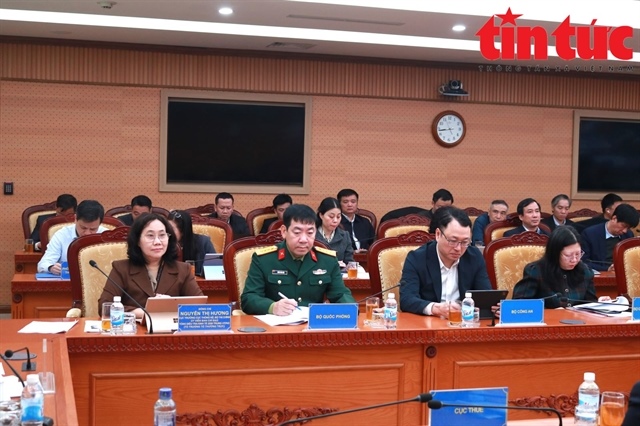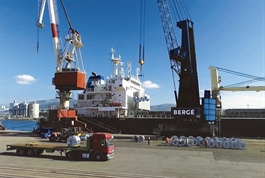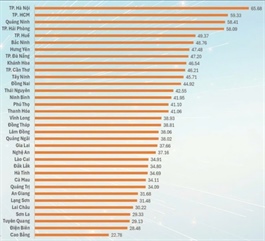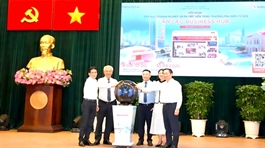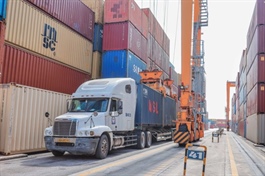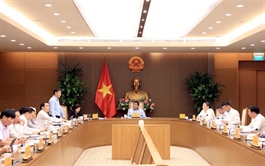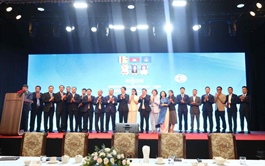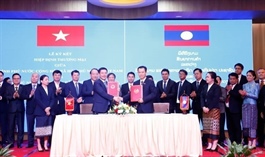Ministry of Finance moves to improve management of foreign funding
Ministry of Finance moves to improve management of foreign funding
The government is moving to improve the management and use of foreign funding to support national development, the Ministry of Finance said at a workshop in Ho Chi Minh City.
On October 3, the Ministry organised the workshop to introduce Decree No.242/2025/ND-CP on the management and use of Official Development Assistance (ODA) and foreign concessional loans. Issued on September 10, the decree introduces major reforms aimed at creating a more open, transparent, and efficient framework to unlock international resources for the country’s development.
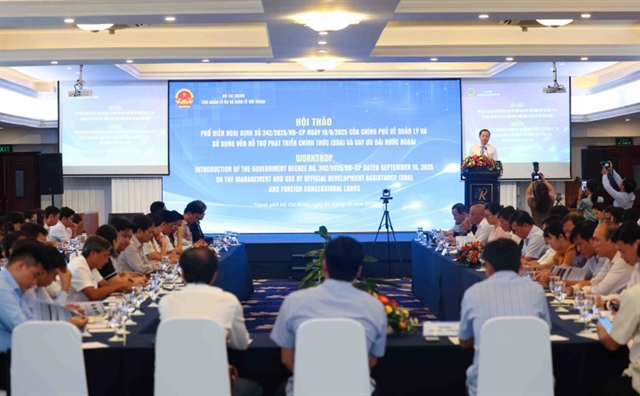
Workshop on Decree 242 held by the Ministry of Finance in Ho Chi Minh City on October 3 |
Speaking at the workshop, Nguyen Quoc Phuong, director general of the Ministry of Finance's (MoF) Department of Debt Management and External Finance , said the issuance of Decree 242 marked an important milestone in completing the legal framework for ODA and concessional loan management.
"Many major projects, including Can Tho Bridge, My Thuan Bridge, and the Ho Chi Minh City Environmental Improvement Project, among many others, bear the imprint of ODA and concessional loans, supporting development in transportation, healthcare, education, and the environment," Phuong noted, adding that these investments have created widespread positive impacts across the Mekong Delta, the Central Highlands, and major urban centres.
According to Phuong, over the past 30 years, ODA and foreign concessional loans have played a vital role in Vietnam’s socioeconomic development.
Alongside these achievements, challenges remain in mobilising, managing, and using ODA and concessional loans, including complex procedures, slow disbursement, lack of coordination among agencies, and overlapping mechanisms that complicate work for project owners, ministries, sectors, and localities.
As Vietnam enters a new phase of transformation, with strong political commitment to achieving at least 8 per cent growth in 2025 and double-digit growth in subsequent years, capital demand is high for infrastructure, transformative projects, green transition, digitalisation, and climate change adaptation.
Key projects in the Mekong Delta include the Mekong Delta DPOs, which use over $3 billion in foreign loans, the nearly $500 million Mekong Delta Climate Resilience and Integrated Transformation Project, and the $315 million one-million-hectare rice-growing initiative financed by the World Bank.
"The government’s issuance of Decree 242, with significant reforms in mechanisms, will help create a more open, transparent, and efficient framework, unlocking international resources for the country’s development in the years ahead," Phuong said.
Nguyen Ba Hung, Chief Economist of the Asian Development Bank (ADB) in Vietnam, assessed Decree 242 as a very positive step in simplifying procedures for projects using ODA funds.
“Firstly, we acknowledge the proactive and active cooperation of the Ministry of Finance during the drafting process, which involved consultation with donors and the incorporation of important feedback. As a result, Decree 242 reflects considerable progress,” Hung told VIR.
According to Hung, some immediate positive impacts can already be seen. For example, greater decentralisation to local authorities allows them to approve matters within their jurisdiction, thereby accelerating decision-making.
In addition to simplifying approval procedures, project management processes have also been streamlined, such as revising and adjusting implementation procedures to become more flexible and faster. These changes, he noted, have had a tangible impact on ongoing projects.
“With the more open provisions of Decree 242, Asian Development Bank is also very optimistic that project preparation with line ministries and executing agencies will be accelerated in the near future,” Hung said.
Decree 242 remains subject to existing laws and, according to Hung, the government is in the process of amending related regulations, including reviewing provisions in international agreements.
“This creates space for ODA use and management to become more efficient, with greater decentralisation and simplified procedures, while ensuring stronger effectiveness control,” he said.
Hung also noted ongoing projects with international partners. "Currently, the ADB is working with Ho Chi Minh City to prepare two large-scale urban flood control projects. These are in the final stages of completing procedures for investment approval, and the ADB is hopeful the process will be expedited, so implementation can begin soon," he added.
- 18:14 03/10/2025





